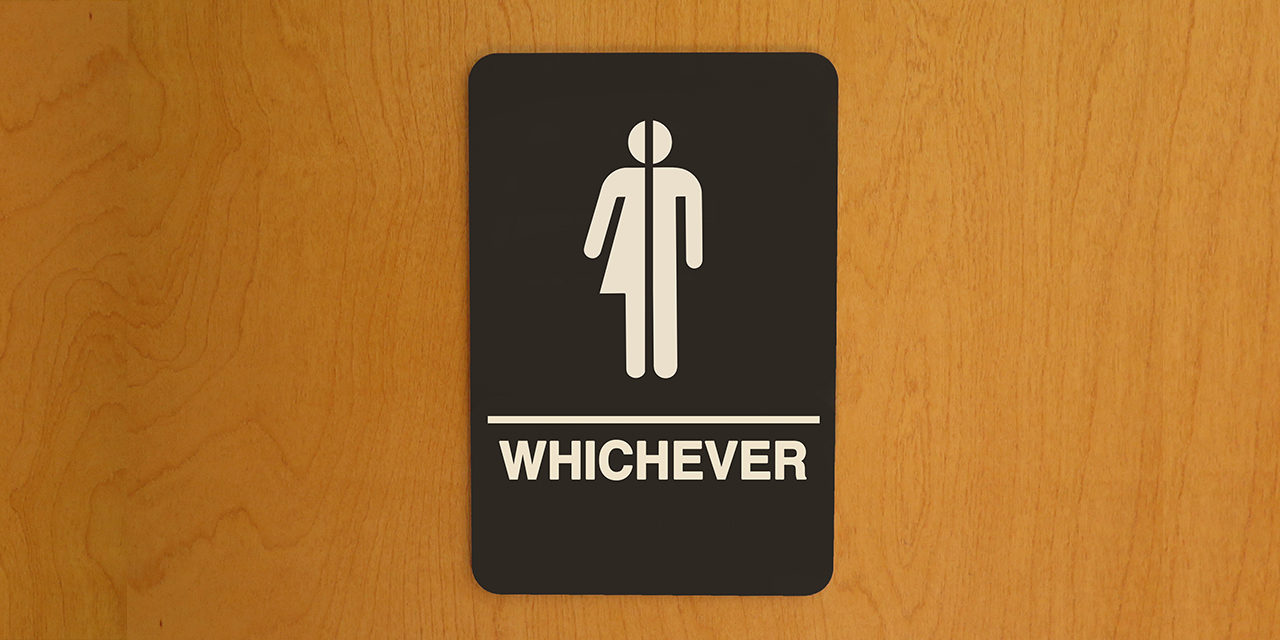The Tennessee legislature figured it would only be wise to require business establishments that allow both sexes to access the same restroom at the same time, to notify their customers of that policy with a sign at the entrance to the restroom. The law it passed to accomplish this, however, was recently declared unconstitutional by a federal judge under the First Amendment’s free speech clause.
Prior to 2021, under Tennessee law, “publicly and privately owned facilities where the public congregates shall be equipped with sufficient temporary or permanent restrooms to meet the needs of the public at peak hours,” and that restrooms for men and women be available in adequate ratios.
In April, the state legislature passed HB 1182/SB 1224 which requires:
“A public or private entity or business that operates a building or facility open to the general public and that, as a matter of formal or informal policy, allows a member of either biological sex to use any public restroom within the building or facility shall post notice of the policy at the entrance of each public restroom and at each entrance of the building accessible by the general public.”
The law was then challenged in court by a couple of businesses frequented by transgender individuals, who alleged that the government was “compelling” speech they disagreed with, and they would likely lose customers if they were forced to post the notice.
Federal District Court Judge Aleta A. Trauger noted that the legislature’s announced purpose behind the act was the protection of women: “[T]he Act’s sponsor, Representative Tim Rudd, explained that he introduced the Act because he was concerned about ‘[n]ew executive orders . . . and new legislation proposed in Congress giving transgenders [sic] rights and extending those rights.’ He explained, though, that the law was ‘not aimed at transgenders [sic].’ Rather, he was concerned, he said, about the possibility of hypothetical sexual predators who would ‘take advantage of’ some public restroom policies to ‘assault[] or rape[]’ other restroom users.”
Judge Trauger then noted that no instances of rapes or sexual assaults due to the lack of such notice had been reported in Tennessee, and then dismissed the law as not serving a “compelling interest” and not “narrowly tailored” to achieve the legislature’s goal.
But the state countered by arguing that the “speech” required in the notice fell under a well-recognized category of “purely factual and uncontroversial information about the terms under which [the businesses’] services will be available,” citing court decisions to that effect.
But the judge disagreed that this was “uncontroversial,” stating that even the U.S. Supreme Court had noted that the topics of sexual orientation and gender identity are, generally speaking, “controversial subjects.”
The judge wrote that the law was the state’s expression of support for one side of that subject. “And of course the signs required by the Act are statements about the nature of sex and gender and the role of transgender individuals in society. Justice is blind, but the court does not have to play dumb,” she wrote.
However, women entering restrooms designated by their biological sex do not, and should not, have to anticipate encountering biological men in such an intimate space, transgender or not. Experience with policies that refuse to recognize basic biology, for example, have led to increased sexual assaults in women’s prisons by “transgender women” – i.e., biological men.
There are also known instances of men posing as women to gain access to women’s facilities of various kinds for malicious purposes. The data is more than sufficient to justify the need to keep women’s spaces safe.
Also, the judge found that Tennessee’s law was unfair by not requiring a similar type of sign in establishments where restrooms are restricted by biological sex. But, isn’t that what the “MEN” and “WOMEN” signs on the door are meant to denote?
Ultimately, because there are some people who feel that gender identity – not biological sex – should determine restroom use, the judge concluded, it would be a violation of their free speech rights and therefore unconstitutional to “compel” such a sign to be posted.
The concept that men and women are different is not an “opinion,” as this judge ruled in this case. The Bible declares that God made them male and female (Genesis 1:27, 5:2, Matthew 19:4-6). We should deal compassionately with those suffering from gender dysphoria, but under no circumstances should that ever require us to put women at risk to their own safety.
There has been no word yet as to whether Tennessee intends to appeal this decision.
The case is Bongo Productions, LLC v. Lawrence.
Photo from Shutterstock






